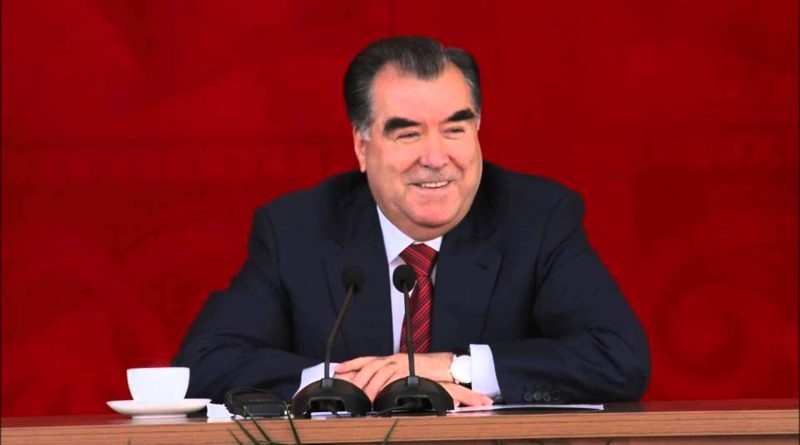Amnesty International: Suppression of opponents and torture continues in Tajikistan
The international human rights organization Amnesty International on March 29 published a new report on the situation of human rights in the world “Amnesty International 2021/22: the human rights situation in the world”. The authors of the report sharply criticized the governments of many countries, including Tajikistan, due to the lack of response to the coronavirus pandemic, the suppression of freedom of speech and criticism, the use of torture and cruel treatment in closed institutions, and other issues.
Thus, the report notes that the Tajik authorities’ premature announcements that coronavirus infections in the country had stopped, coupled with strict control over the publication of information, frustrated the implementation of sanitary and epidemiological measures designed to protect public health during the pandemic.
On January 26, the President announced to Parliament that there were no more new cases of Covid infection in Tajikistan. At the same time, media reported that doctors were under pressure not to diagnose coronavirus, and at least one doctor was allegedly fired after he indicated that the test result was positive. Nevertheless, on June 21, the government acknowledged that a number of cases of infection in the country did take place, but blamed for this on the population, which doesn’t comply with protection measures.
The authorities carefully controlled the entire narrative around the coronavirus pandemic and downplayed its real impact. In September, for example, the authorities announced 17,000 cases of coronavirus infection and 124 deaths since the start of the pandemic, but according to independent media, the numbers are much higher, based on their own data. As a result, measures to limit the spread of infection and protect public health were taken late and were less effective.
The authorities introduced mandatory vaccination of all adults, but there was no information on how it would be implemented. As of the end of the year, over 4 million doses of the vaccine had been injected in Tajikistan.
Much attention was paid by the authors to the problem of domestic violence. For example, the report notes that victims of domestic violence faced numerous barriers to getting help and protection and seeking justice.
Under the Domestic Violence Act of 2013, victims can file complaints with law enforcement. However, law enforcement agencies, in turn, are not required to take steps to investigate complaints, issue protection orders and initiate criminal proceedings.
The Parliament was considering a new version of the Criminal Code, which contains an article on criminal liability specifically for domestic violence. However, it doesn’t cover all types of violence, for example, it doesn’t mention psychological violence, as well as marital rape and marital sexual violence.
Amnesty International believes that torture and other cruel treatment continued to be widespread, but information about these facts is still limited.
Only a small number of cases of torture and other cruel treatment were officially reported. In March, a legal aid group within the Civil Society Coalition against Torture reported that it had documented at least 38 cases of torture and other cruel treatment during 2020, noting that this was only a fraction of the actual number.
In June, three police officers were sentenced to 10 to 13 years in prison for torturing Khasan Edgorov in 2017 in the western Tajik city of Tursunzoda. Khasan Edgorov ‘confessed’ to the murder after policemen beat and tortured him with stun gun for several days. He spent six months in pre-trial detention center before being cleared of all charges and was released in May 2018 after another suspect was caught. Khasan Edgorov filed a complaint about torture the day after his release. Two police officers were granted amnesty, which reduced their sentences.
Repressions continued against oppositionists and critics of the authorities. They were sentenced to long prison terms on politically motivated charges, and often the authorities sought their extradition from other countries, and also persecuted their relatives both in Tajikistan and abroad.
Saadi Rakhmatov, who is the son-in-law of Sharofiddin Gadoev, deputy leader of the arbitrarily banned opposition movement Group 24, was released from prison in Greece on January 13, where he spent two months in custody, because the authorities of Tajikistan put him on the international wanted list through Interpol channels. In Tajikistan, Saadi Rakhmatov was charged with ‘assisting mercenaries’, which is punishable by 15 years in prison.
On March 25, an independent lawyer and chairman of the Tajiks’ Center in Moscow, Izzat Amon (also known as Izatullo Kholov), disappeared. Two days later, the Tajik Interior Ministry reported that he was in detention in the capital (Dushanbe), where he was transferred after his extradition from Russia. Izzat Amon has repeatedly criticized the authorities of Tajikistan for their unwillingness to protect the rights of migrants from Tajikistan in Russia.
In October, the City Court of Dushanbe sentenced him to nine years in prison on fraud charges. Mirzo Khojimuhammad, a former member of the arbitrarily banned Islamic Renaissance Party of Tajikistan (IRPT), was sentenced on June 1 to five years in prison for ‘membership in a banned extremist organization’. For the past two years, he has worked in Russia as a doctor and came to Tajikistan in February for a visit. The authorities took a written undertaking not to leave him, and then arrested him in May. His conviction was allegedly based on unspecified social media posts. In 2020, in an interview with the media, he criticized the fact that the authorities recognized the existence of a coronavirus pandemic too late.
In January, independent journalist Daler Sharipov was released after serving his sentence. In April 2020, the court convicted him of ‘inciting religious intolerance’ and sentenced him to one year in prison for publishing in secret and distributing his treatise on Islam.
In October, Buzurgmekhr Yorov’s sentence was reduced by four years under the amnesty timed to coincide with the 30th anniversary of the country’s independence. Lawyer Buzurgmekhr Yorov was sentenced to 28 years in prison for representing the interests of several members of the banned IRPT.




